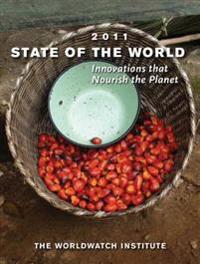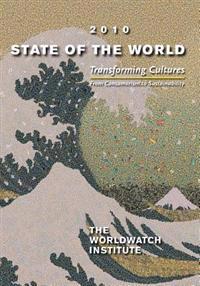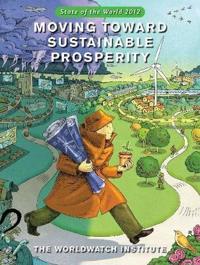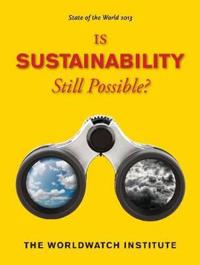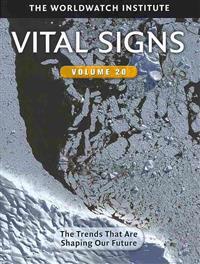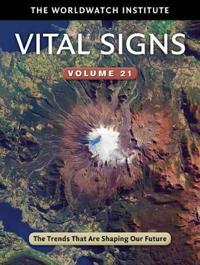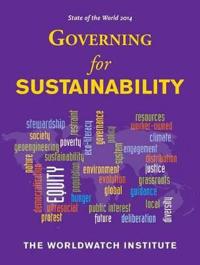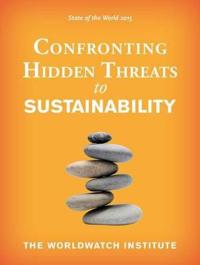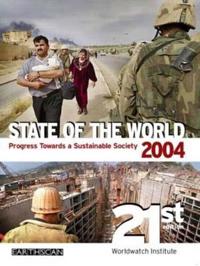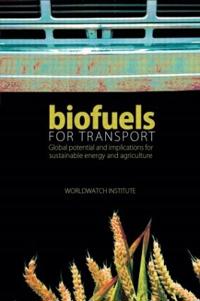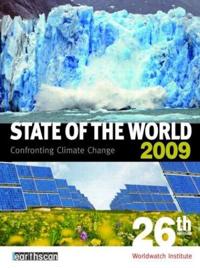State of the World 2011 (Pocket)
avWorldwatch Institute (COR), Linda Starke, Worldwatch Institute (COR)
ISBN: 9780393338805 - UTGIVEN: 201101Known for tackling the most pressing issues that face our world, the Worldwatch Institute has dedicated the 2011 edition of its flagship report to a compelling look at the global food crisis, with particular emphasis on what innovators globally can do to help solve a worldwide problem. State of the [...]
State of the World 2010 (Häftad)
avThe Worldwatch Institute
ISBN: 9780393337266 - UTGIVEN: 201001For society to thrive long into the future, we must move beyond our unsustainable consumer culture to one that respects environmental realities. In State of the World 2010, the Worldwatch Institute's award-winning research team reveals not only how human societies can make this shift but also how pe[...]
State of the World (Häftad)
avThe Worldwatch Institute
ISBN: 9781610910378 - UTGIVEN: 201205In the 2012 edition of its flagship report, Worldwatch celebrates the twentieth anniversary of the 1992 Earth Summit with a far-reaching analysis of progress toward building sustainable economies. Written in clear language with easy-to-read charts, "State of the World 2012" offers a new perspective [...]
State of the World 2013 (Häftad)
avThe Worldwatch Institute
ISBN: 9781610914499 - UTGIVEN: 201304Every day, we are presented with a range of "sustainable" products and activities-from "green" cleaning supplies to carbon offsets - but with so much labelled as "sustainable," the term has become essentially sustainable, at best indicating a practice or product slightly less damaging than the conve[...]
Vital Signs 2013 (Häftad)
avThe Worldwatch Institute
ISBN: 9781610914567 - UTGIVEN: 201308From meat consumption to automobile production to hydropower, "Vital Signs 2013" documents over two dozen trends that are shaping our future in concise analyses and clear tables and graphs. The twentieth volume of the "Worldwatch Institute" series demonstrates that while remarkable progress has been[...]
Vital Signs (Häftad)
avThe Worldwatch Institute
ISBN: 9781610915397 - UTGIVEN: 2014-11This is the most up-to-date information on a diverse range of global trends. Vital Signs Volume 21 is all about growth. From natural disasters to cars to organic farming, the two dozen trends examined here indicate both increasing pressure on natural resources and scaled up efforts to live more sust[...]
State of the World 2014 (Pocket)
avWorldwatch Institute (COR), Tom (CON) Prugh, Michael (CON) Renner
ISBN: 9781610915410 - UTGIVEN: 2014-04Citizens expect their governments to lead on sustainability. But from largely disappointing international conferences like Rio II to the U.S.'s failure to pass meaningful climate legislation, governments' progress has been lackluster. That's not to say leadership is absent; it just often comes from [...]
State of the World 2015 (Pocket)
avWorldwatch Institute (COR)
ISBN: 9781610916103 - UTGIVEN: 2015-04This is the newest edition of The Worldwatch Institute's respected State of the World series that highlights the ignored threats to sustainability. We think we understand environmental damage: pollution, water scarcity, a warming world. But these problems are just the tip of the iceberg. Food insecu[...]
State of the World (Häftad)
avThe Worldwatch Institute
ISBN: 9781844070657 - UTGIVEN: 200401"State of the World 2004" takes a fresh look at the trends that have put the global economy on a collision course with the Earth's ecosystems. This year's edition has a special focus on the theme of consumption. It questions whether a less-consumptive society is possible; and concludes that it is es[...]
Biofuels for Transport (Inbunden)
avThe Worldwatch Institute
ISBN: 9781844074228 - UTGIVEN: 200707The world is on the verge of an unprecedented increase in the production and use of biofuels for transport. The combination of rising oil prices, issues of security, climate instability and pollution, deepening poverty in rural and agricultural areas, and a host of improved technologies, is propelli[...]
State of the World (Häftad)
avThe Worldwatch Institute
ISBN: 9781844076949 - UTGIVEN: 200901The year 2009 will be pivotal for Earth's climate. As scientists warn that we have only a few years to reverse the rise in greenhouse gas emissions if we are to avoid abrupt and catastrophic climate change, the world community has agreed to finalize negotiations on a new climate agreement in Copenha[...]
State Of The World (Pocket)
avThe Worldwatch Institute
ISBN: 9781849710541 - UTGIVEN: 2010-01-15Many of the environmental and social problems we face are symptoms of a deeper systemic failing: a dominant cultural paradigm that encourages living in ways that are often directly counter to the realities of a finite planet. This title paints a picture of what this sustainability culture could look[...]
State of the World 2011 (Pocket)
avWorldwatch Institute
ISBN: 9781849713528 - UTGIVEN: 2011-01-11Assesses the state of agricultural innovations from cropping methods to irrigation technology to agricultural policy with an emphasis on sustainability, diversity, and ecosystem health in the hope of guiding governments, foundations, and concerned citizens in their efforts to eradicate hunger and po[...]

